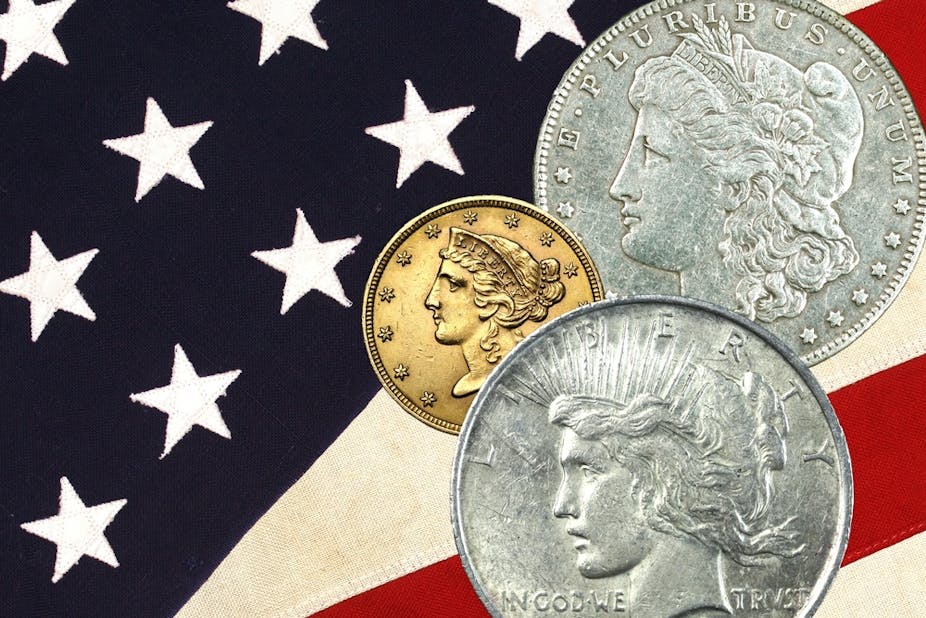A few years back, mock-conservative TV pundit Stephen Colbert famously introduced the notion of “truthiness” into the political lexicon. As Colbert put it, truthiness pertains not to whether beliefs are true, but whether one “feels” they should be true.
In this light, the Republican Party’s reported adoption of a platform plank supporting a commission to study a return to the gold standard should be seen as resting on a very “truthy” foundation. No doubt many Republican delegates feel that a return to gold would bring stability and discipline to economic policy and to financial markets. They long for a return to the days when the dollar was as “good as gold”. However, the overwhelming consensus among economists is that the gold standard would be a disastrous policy.
To be sure, we should not single out the Republican delegates for scorn in their attachment to what Keynes termed the “barbarous relic.” This misguided infatuation has been shared by some of the leading figures of past century.
For example, before he was arguably the greatest British Prime Minister of the 20th century, Winston Churchill may have been its worst Finance Minister. In 1925, as England was slowly recovering from the First World War, Churchill sought to restore respect for England by restoring pound to its prewar gold parity. Doing so meant limiting the supply of credit and government spending, and placed the British economy first in line for the Great Depression.
In a similar elevation of emotion over intellect, John F. Kennedy informed his economic advisers that he feared a collapse of the gold standard as much as a nuclear war. Perhaps closer to the truth, he also stressed that he feared the wrath of his father if he broke with gold.
Such support is particularly puzzling to the extent that so many economists - from virtually every major school of thought - agree that the gold standard represents a particularly poor policy choice. Indeed, while John Maynard Keynes is perhaps the most well-known opponent of gold as it restricts the scope for macroeconomic policymaking, famed free-market economist Milton Friedman also opposed the gold standard on the grounds that it represented a form of price fixing. Better, Friedman argued, to let markets decide what a currency was worth.
Indeed, Friedman – like Keynes – believed that the fundamental strength of a currency came not from a store any precious metals, but rather from the value of the goods and services that an economy produced. If the world wanted a nation’s exports, demand for its currency would rise. If a nation produced nothing of value, no amount of gold would produce a strong currency.
Likewise, Friedman and Keynes each recognised that if gold discoveries failed to keep in step with economic production, the result could be to enforce a global deflation. In his magisterial work, A Monetary History of the United States, co-authored with Anna J. Schwartz, Friedman argued that the two greatest depressions in US history – the “Long Depression” from the 1870s to the 1890s, and the Great Depression of the 1930s – had each been made worse by the gold standard. Friedman famously wrote that the “Great Crash” of 1929 was far less significant that the “Great Contraction” of 1929-1933. Over these four years, the US Federal Reserve tightened up on the money supply, making recovery that much harder.
Moreover, continuing with a historical focus, it is worth stressing that the gold standard provides no dependable bulwark against financial panics or inflation. The late 19th century, which saw the rise of the classical gold standard, also saw recurring financial panics – as did, of course, the 1920s. Likewise, when countries are confronted with sudden inflows of gold – as was the United States during World War I – the gold standard can increase the money supply and give rise to inflation. The gold standard is no guarantee of price stability if the gold supply shifts in an unpredictable fashion.
Finally, it is worth noting that neither the gold supply nor the money supply – as managed by the central bank – is the sole determinant of inflationary or financial trends. What matters is not only the quantity of money, but also the velocity (or speed) with which it is spent. For example, financial panics are ultimately rooted in the decisions of private actors – banks and investors – who may recycle money excessively, leading overleveraged markets to collapse. The best way to prevent such manias is through effective regulation - unfortunately, not a priority of the Republican Party.
In short, the gold standard has the aura of history and authority about it. It “feels” like it should work - but it represents the triumph of hope over both reason and experience alike.

